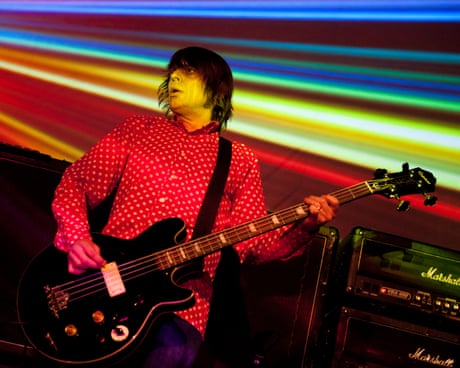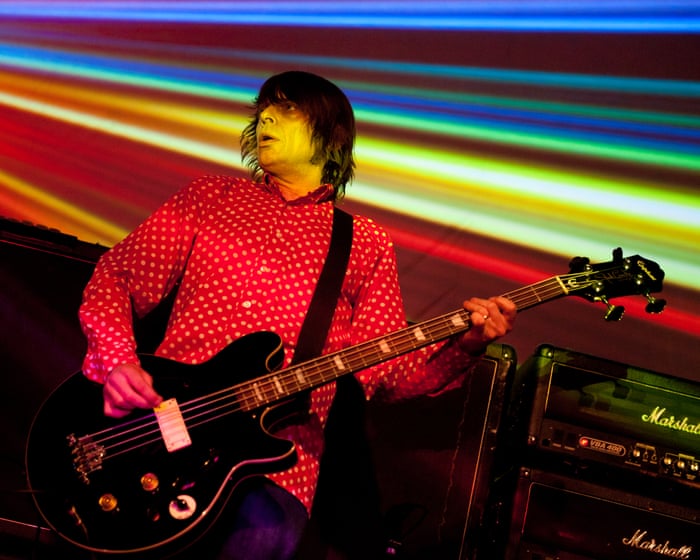Mani’s writhing, relentless bass was the Stone Roses’ secret sauce – it taught indie kids how to dance | Alexis Petridis
His love of ‘good northern soul and funk’ was always in evidence and had a lasting impact on alternative music
By any metric, the rise of the Stone Roses was a sudden and remarkable thing. It took place over the course of 12 months. At the start of 1989, they were just a local cause of excitement in Manchester, largely ignored by the traditional outlets for alternative rock in Britain. John Peel wasn’t a fan. The music press had barely mentioned their most recent single, Elephant Stone. They were barely able to fill even a more modest London venue such as Dingwalls. But by November they were huge. Their single Fools Gold had entered the charts at No 8 and their performance was the big attraction on that week’s Top of the Pops – a barely imaginable state of affairs for most indie bands in the late 80s.
In retrospect, you can find any number of reasons why the Stone Roses cut such an extraordinary path, clearly attracting a far bigger and broader audience than usually displayed an interest in alternative rock at the time. They were set apart by their look – which seemed to align them more to the burgeoning acid house scene – their cockily belligerent attitude and the skill of the guitarist John Squire, unashamedly virtuosic in a world of distorted thrashing downstrokes.
Continue reading...
© Photograph: Ollie Millington/Getty Images

© Photograph: Ollie Millington/Getty Images

© Photograph: Ollie Millington/Getty Images





